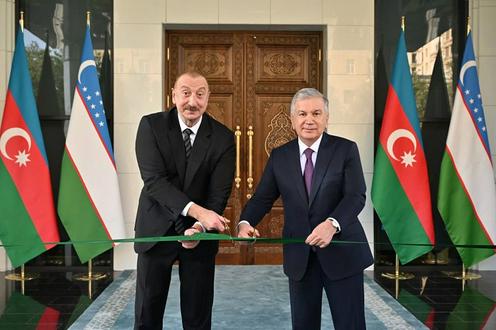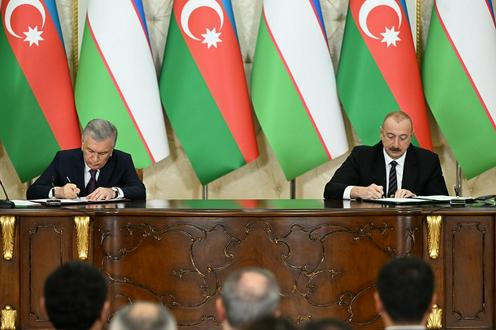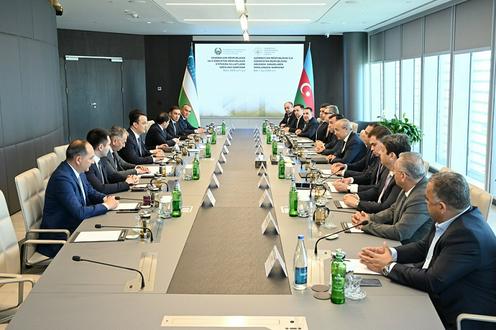On July 2–3, Uzbek President Shavkat Mirziyoyev paid an official visit to Baku. His agenda included a meeting with Azerbaijani President Ilham Aliyev, a session of the Interstate Council, and a number of other high-level events. A series of important agreements were signed as a result of the talks.
The leaders of the Central Asian republic and Azerbaijan often stress that their countries are not merely partners but true allies. That message is borne out by joint initiatives across a range of sectors: business, tourism, culture, and education. Fergana takes a closer look at some of the many dimensions of Uzbek-Azerbaijani friendship.
Thirty Years of Friendship
Speaking at the session of the Interstate Council, President Mirziyoyev emphasized the significance of this year: thirty years ago, Uzbekistan and Azerbaijan established diplomatic relations. The anniversary will be officially celebrated in the fall, and the president announced a large-scale cultural and entertainment program to mark the occasion.
Most importantly, Mirziyoyev noted, the relationship between the two countries has never been as strong as it is today. Cooperation is thriving across multiple sectors, all showing positive momentum. For instance, mutual trade has increased by 25 percent, the investment portfolio has grown to $4 billion, and the number of joint ventures is approaching 300.
President Aliyev highlighted the deep historical, cultural, linguistic, and ethnic ties between the two nations. He used a poetic metaphor, saying that “on this foundation, a beautiful building of Uzbek-Azerbaijani brotherhood is being built.” Taking the opportunity, Aliyev congratulated his counterpart on Uzbekistan’s remarkable achievement of qualifying for the FIFA World Cup. Mirziyoyev, in turn, offered his congratulations to Azerbaijan’s national futsal team, which recently claimed the world championship title.
Of course, these poetic and sporting flourishes were not the highlight of the negotiations. The two sides engaged in substantial talks, evidenced by the package of agreements signed during the visit.
According to the press service of President Mirziyoyev, the following documents were signed in the presence of both heads of state:
✅ A roadmap for implementing the Treaty on Allied Relations for 2025–2029;
✅ An intergovernmental agreement on cooperation in environmental protection;
✅ An intergovernmental agreement on cooperation in science, vocational training, and higher education;
✅ An industrial cooperation program for 2025–2026;
✅ A program to increase bilateral trade to $1 billion by 2030;
✅ An action plan for developing cooperation in agriculture and food security for 2025–2027;
✅ A roadmap for cooperation in social protection for 2025–2027;
✅ A protocol on cooperation in shipping and shipbuilding;
✅ Agreements establishing sister-city relations between Tashkent Region and the city of Sumgayit, as well as between the cities of Navoi and Gabala.
As the range of agreements suggests, the partnership between Uzbekistan and Azerbaijan spans a wide spectrum of sectors. What stands out most is the top-level commitment to expanding trade. This isn’t just about the usual rhetoric of increasing product categories or aligning technical standards; it’s a concrete action plan laid out on paper—something that typically motivates officials to move faster, create favorable conditions for business, and implement real incentives.
At this pace, Azerbaijan could enter Uzbekistan’s top ten trading partners within the next five years, overtaking countries like France, Germany, and India—whose trade with the Central Asian republic currently hovers around the “billion-plus” mark.
Equally important is the close cooperation in logistics. The Middle Corridor through the Caspian Sea provides Uzbek companies with a fast route to deliver goods to Europe. As a result, freight volumes on this route have surpassed one million tons. The two sides also discussed high-level joint initiatives, including a project to export electricity to the European market.
As President Aliyev noted, “The results of our Interstate Council will soon speak for themselves.”
Business Delegation
As is customary, President Mirziyoyev’s visit to Baku was preceded by a series of related events. These meetings further underscored the diverse nature of Uzbek-Azerbaijani cooperation. For example, the city of Khiva hosted the first interparliamentary forum between the two nations, where a wide range of issues—from economic relations to cultural and humanitarian ties—was discussed. As a result, lawmakers from both sides agreed to create a special commission to coordinate and implement joint initiatives.
Meanwhile in Baku, an Uzbek “business delegation” arrived under the leadership of Laziz Kudratov, Uzbekistan’s Minister of Innovation, Industry, and Trade. Business leaders from both countries gathered at Azerbaijan’s Ministry of Economy, where the host delegation was headed by Minister Mikayil Jabbarov.
The talks proved fruitful. Several Azerbaijani construction firms entered into partnerships with the Uzbek ministry—not only to launch production of building materials in Uzbekistan, but also to take part in housing developments in the city of Namangan. Uzbek companies also made headway on a major export deal involving large shipments of ceramic tile and porcelain stoneware.
In addition, agreements were reached between businesses and state associations from both countries on cooperation in the production of dairy goods, household chemicals, and high-voltage cables.
Azerbaijan’s Ministry of Economy emphasized that the meeting resulted in the signing of several agreements aimed at diversifying economic cooperation.
“The implementation of these documents—focused on launching joint initiatives in industry, construction, manufacturing, and infrastructure development—will stimulate collaboration and enhance trade and economic relations between businesses,” the ministry noted.
One notable development was in the field of natural resources. Talks were held in Baku between the leadership of Azerbaijan’s state oil company SOCAR and Uzbekneftegaz. The two sides agreed to jointly conduct geological exploration at fields located in the Uzbek section of the Ustyurt Plateau.
A final touch to the business agenda was the opening of a permanent showroom in Baku under the “Made in Uzbekistan” brand. According to the Ministry of Innovation, Industry, and Trade, the 1,500-square-meter space showcases products from Uzbekistan’s electrical, textile, and leather industries, along with construction materials and furniture.
Mirror Projects
Returning to President Mirziyoyev’s visit, it’s worth noting that he took part in several additional events, including the opening of Uzbekistan’s new embassy building in Baku. The halls of the new embassy are named after regions of the Central Asian republic; however, the president proposed renaming one of them “Karabakh” as a symbol of friendship and solidarity between the two nations. In any case, Uzbek diplomats will now work toward strengthening the strategic partnership and alliance with Azerbaijan in more comfortable conditions.
Another key moment was the groundbreaking ceremony for the Uzbekistan Park, which will be located in the prestigious White City district of Baku. The park will cover 4.5 hectares (some sources say 5) and will include a wide range of facilities—from green spaces and shops to a hotel, beach, and restaurants. The project also envisions more “exotic” features such as an oceanarium, wax museum, and flying theater. All of these elements will be adorned with traditional Uzbek ornamentation and architectural motifs, including intricate tilework, arches, and domes. One section of the park will showcase reconstructed landmarks of Samarkand, Bukhara, and Khiva. The complex is expected to host up to 800,000 visitors annually.
The project is valued at $80 million. Construction of the park will take two years after obtaining all necessary permits. The development is led by the well-known businessman and former mayor of Tashkent, Jahongir Artykhojaev.
At the project presentation, Artykhojaev shared that he has engaged leading Uzbek architects, while an Australian company will handle the internal communications infrastructure.
“The president has tasked us with making this park a true mirror of Uzbekistan in Azerbaijan,” emphasized Artykhojaev.
The theme of “mirror projects” will continue. According to Mirziyoyev’s press service, active preparations are underway to organize an “Azerbaijan Park” in Uzbekistan. Details of this initiative have yet to be disclosed, but it is clear that this project will also be implemented on a grand scale.
Another joint symbol of cooperation is the Sea Breeze resort zone, created by businessman and popular singer Emin Agalarov. Currently, such a resort town exists only in the entrepreneur’s homeland, located about half an hour from Baku on the Caspian Sea coast.
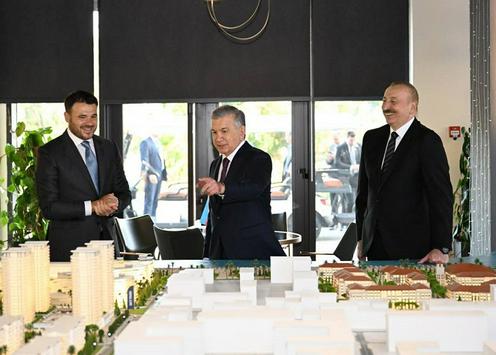 Emin Agalarov presenting the Sea Breeze project to the leaders of both countries. Photo: Press service of the President of Uzbekistan
Emin Agalarov presenting the Sea Breeze project to the leaders of both countries. Photo: Press service of the President of Uzbekistan
The President of Uzbekistan toured the site, where Agalarov, accompanied by Aliyev, introduced the guest to the «Caspian Riviera» — a complex featuring not only beaches and hotels but also residential areas, parks, cottages, and sports facilities.
Currently, 20,000 people live there, but upon full completion, the population is expected to grow to 500,000. The Sea Breeze project also includes plans to create an artificial crescent-shaped peninsula covering 50 hectares.
According to the complex’s owner, investments in the project have reached $3 billion, with an additional $10 billion expected to be attracted over the next five years. He highlighted the “Uzbek trace” within the resort area — notably, a restaurant from the The Choyxona brand operates there.
Agalarov plans to build a similar resort town in Uzbekistan’s Tashkent region on the shore of the Charvak Reservoir. He has made multiple visits to Tashkent and presented the Sea Breeze Uzbekistan project to President Mirziyoyev. At the end of last year, the cost of creating this tourist center was estimated at $10 billion. Later, the investment amount was halved, but a concrete project emerged, and the entrepreneur’s company signed a corresponding agreement with the Uzbek government.
According to the press service of the President of Azerbaijan, during Mirziyoyev’s visit to Baku’s Sea Breeze, he was shown an updated concept of the master plan for the similar Uzbek project. Details were not specified, but it seems Tashkent will soon gain a new major tourist attraction, similar to Baku’s.
-
 11 November11.11To Live Despite All HardshipUzbek filmmaker Rashid Malikov on his new film, a medieval threat, and the wages of filmmakers
11 November11.11To Live Despite All HardshipUzbek filmmaker Rashid Malikov on his new film, a medieval threat, and the wages of filmmakers -
 22 October22.10Older Than the Eternal CityWhat has Samarkand accomplished in its three thousand years of existence?
22 October22.10Older Than the Eternal CityWhat has Samarkand accomplished in its three thousand years of existence? -
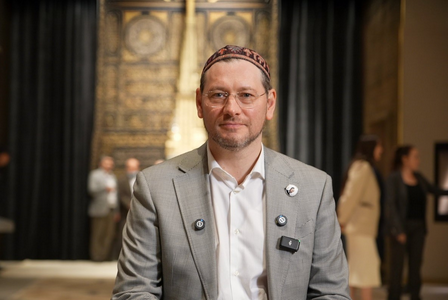 02 October02.10“To See the Kiswa Is Like Making a Small ‘Virtual’ Pilgrimage”Damir Mukhetdinov on the Center for Islamic Civilization in Tashkent, the Kaaba Covering, and Qurans
02 October02.10“To See the Kiswa Is Like Making a Small ‘Virtual’ Pilgrimage”Damir Mukhetdinov on the Center for Islamic Civilization in Tashkent, the Kaaba Covering, and Qurans -
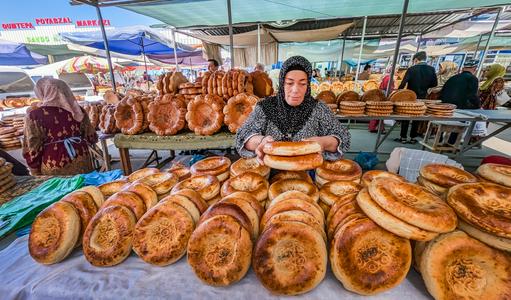 26 September26.09PhotoA Close-Up of the BazaarPhoto Tour of the Fergana Valley with Anzor Bukharsky
26 September26.09PhotoA Close-Up of the BazaarPhoto Tour of the Fergana Valley with Anzor Bukharsky -
 17 September17.09Risky PartnershipWhy Dealing with China Is Harder Than It Seems at First Glance
17 September17.09Risky PartnershipWhy Dealing with China Is Harder Than It Seems at First Glance -
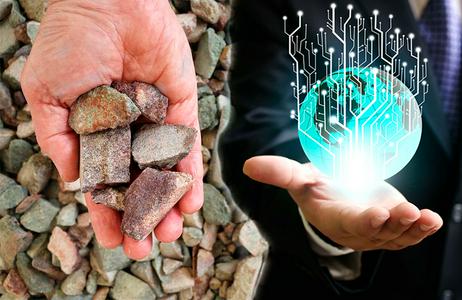 19 August19.08Selling Resources or Investing in the Future?Uzbekistan’s Accession to ERMA Strengthens Its Position and Shifts the Balance of Power in the Critical Minerals Market
19 August19.08Selling Resources or Investing in the Future?Uzbekistan’s Accession to ERMA Strengthens Its Position and Shifts the Balance of Power in the Critical Minerals Market
